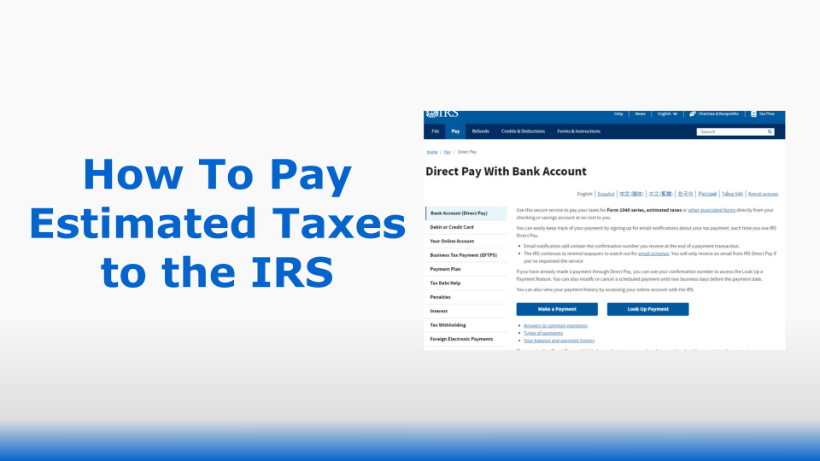Can I claim the home office tax deduction for part time work?
Published:
There are many expenses associated with homeownership, so it’s nice to know that there are tax breaks to help ease the financial burden. The Home Office Tax Deduction is designed for individuals who use a portion of their home for business activities.
As long as you meet the IRS’s requirements, the home office deduction allows you to deduct certain expenses that the average homeowner cannot.
The home office tax deduction can be used by taxpayers who are employees (e.g., for a company) or who are self-employed. If you are eligible to claim this tax deduction but you moved partway through the year, you can only deduct home office expenses for the portion of the year during which you used your home office.
If you also work at another location (other than your home), you should be careful when claiming certain expenses — for example, administrative duties (i.e. bookkeeping) may be considered “qualified expenses” under this tax deduction, but your home office must be the only place where you can carry out these tasks.
If you work from your home part-time, you will have to be able to prove that you work in your home office enough to pass the “Regular Use Test.” The details surrounding this rule are a bit vague, but generally require consistent use of your home office. On Page 3 of IRS Publication 587 (Business Use of Your Home), it says:
“To qualify under the regular use test, you must use a specific area of your home for business on a regular basis. Incidental or occasional business use is not regular use. You must consider all facts and circumstances in determining whether your use is on a regular basis.”
Understanding the Home Office Tax Deduction
Claiming the home office tax deduction is a great tax strategy which allows you to deduct the costs associated with your home office, thus lowering your taxable income and your overall tax bill.
Remember that tax deductions lower your taxable income and they are equal to the percentage of your marginal tax bracket.
For example, if you are in the 25% tax bracket, a $1,000 deduction saves you $250 in tax (0.25 x $1,000 = $250). There are two main types of tax deductions: the standard deduction and itemized deductions. A taxpayer may use one or the other, but not both. It is typically recommended that you itemize your deductions if their total is greater than the standard deduction.
According to the IRS, you must meet 3 main requirements in order to be eligible for the home office tax deduction. You must use a portion of your home exclusively and regularly:
• as your principal place of business, or
• as a place to meet or deal with clients/customers in the normal course of your business, or
• in any connection with your trade or business where the business portion of your home is a separate structure not attached to your home
The IRS also allows you to deduct expenses for the business use of your home for some special situations. To qualify for the tax deduction, you must use part of your home:
• for certain storage use on a regular basis, or
• for rental use, or
• to operate a daycare facility
Exclusive & regular Use
In order to be eligible for the home office tax deduction, the IRS requires that you regularly use a part of your home exclusively for conducting business. In other words, you cannot put a computer in the guest room and call it a “home office.” You also cannot allow family members or friends to use your home office for their own projects.
To qualify, your home office must be a separate room or identifiable area from which personal activities are completely excluded.
The IRS is very strict about the exclusive-use requirement, although there is less information when it comes to what defines “regular use.” Conducting business from your home office at least a few hours each day is probably enough to fulfill the regular-use requirement.
Principal Place of Business and/or a Place to Meet with Clients
To be able to deduct the expenses associated with the business use of your home, you must demonstrate that you use your home office as your principal place of business. This means that the office portion of your home must be used extensively and consistently for your business activities, or as a place where you meet with your clients/customers in the normal course of your business.
Note that even if you also conduct business at another location, you can still deduct the expenses associated with the part of your home which is used exclusively and regularly for business. This means that your home office must be your principal place of business, but not necessarily your principal office. A separate or detached structure (such as a garage or studio) may qualify as a home office if it is used solely and regularly for business.
Additional Rules for Employees
The requirements discussed above apply to anyone who wants to claim the home office tax deduction, including individuals who are self-employed, as well as employees. If you are an employee (of a company or other person), it is important to know that there are additional qualifications for the home office deduction.
To be eligible as an employee, you must also pass the following tests:
• Using part of your home to conduct business must be for the convenience of your employer, and
• You cannot rent any portion of your home to your employer and use that rented space to carry out work duties for that employer.
Which Expenses Can Be Deducted
The IRS only allows you to deduct certain qualified expenses under the home office tax deduction.
There are 3 general rules when it comes the expenses that qualify for this tax break:
1. Home Office Only — If an expense is related only to your home office, the entire cost is deductible as a “direct” home office expense.
2. Whole House — If an expense affects the entire house, a percentage of it will be deductible as an “indirect” home office expense.
3. Non-Business — If an expense is associated solely with the non-business portion of your home, it is not deductible as a home office expense.
As with every tax deduction, there are restrictions on how much you are allowed to deduct for your home office expenses. In general, the more substantial your home business activities are, the greater your chances are for qualifying for the home office tax deduction. Keep in mind, however, the amount of your home office tax deduction cannot exceed your home-based business income.
For More Information
For more information regarding the home office tax deduction, including special rules and which tax worksheets, please refer to the following resources:
IRS Publication 527 (Residential Rental Property)
IRS Publication 587 (Business Use of Your Home)
IRS Tax Form 8829 (Expenses for Business Use of Your Home)
IRS Tax Form 8829 Instructions



